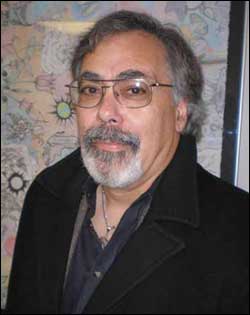As a high school student during the Cuban Missile Crisis, Raymond Michalowski could not understand why his life was in danger because of the small island country.
In 1985 he had the chance to satisfy his curiosity about the island through visits and research projects. Since then, he has visited Cuba extensively and lived there in the spring of 1989 to conduct research on Cuban law.
Michalowski, a Regents’ Professor of criminology and criminal justice at Northern Arizona University, said the Cuba of today is not the same Cuba he began studying, but many of the same questions regarding its role in U.S. politics remain the same as years past.
“I started studying Cuba because I wondered ‘Why the big deal?'” Michalowski said. “I would still ask the same question today.”
Michalowski said he believes the island’s role in world politics has been overplayed.
“The idea that Cuba was ever a threat to the U.S. is rather silly,” he said. “It is a small, poor island of just 10 million people, the size of some of the United States’ large cities.”
Historically, Cuba was seen as a viable threat to the U.S. during the 1962 Cuban Missile Crisis because of Soviet missile bases being built on the island, about 90 miles from Florida.
That same year, the U.S. enacted an embargo against Cuba that restricted trade with the island in reaction to Cuba taking control of U.S. properties on the island. The embargo is still in effect today, limiting the business Americans can conduct with Cuba.
In light of Fidel Castro’s resignation last month from the Cuban presidency and the transfer of power to his brother, Raul Castro, many Americans are wondering about the island’s future.
“It is a U.S. fantasy that (now that Fidel Castro is no longer in power) Cuban people will overthrow socialism enthusiastically and embrace an open market system like they did in Eastern Europe,” Michalowski said. “But that is not the case. In Europe, socialism was imposed and in Cuba it was homegrown in a revolution started by Cubans. Cuban socialism was a natural outgrowth of social democratic tendencies that are a strong part of Cuba’s historical heritage.”
Michalowski said he believes the continued rocky relationship between the United States and Cuba stems from a tense political situation in Florida where there is a high population of Cuban-Americans who can influence important U.S. elections.
And although Michalowski dubs Fidel Castro the “George Washington of Cuba” because of his impact on the island, he said many Americans misunderstand the role of Castro in Cuban history.
“Americans tend to overlook that Cuban socialism was a Cuban creation from a large social movement,” Michalowski said. “The culture that supported socialist support systems has not gone away.”
His hope for Cuba is that Cubans who live on the island get to decide for themselves their own future without the influence of outside factors or pressures.
He also hopes the trade embargo the U.S. has with Cuba is lifted and that the island can trade with the United States “without strings attached.”
“Cuba is just a normal country, with normal problems and normal relations with the rest of the world—except the U.S.,” he said. “Cubans like Americans as people, but the natural and historical relations with Cuba have been distorted by the U.S.”



